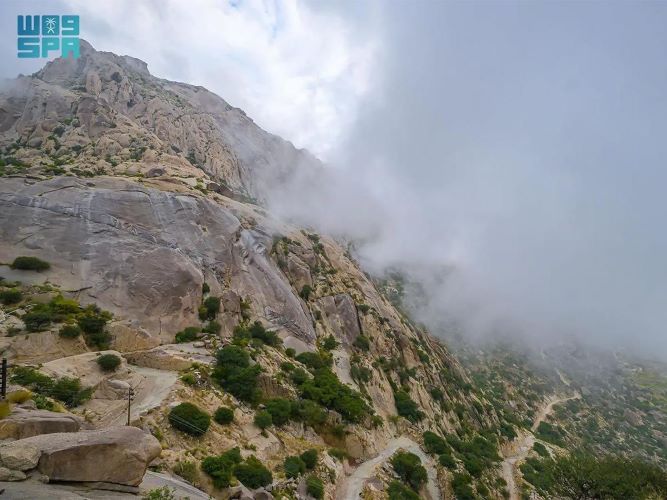
The Shada Al-Ala Mountain Reserve is a distinctive nature marvel in the Tihama area, where a steep granite mountain rises prominently
AL BAHA, Saudi Arabia
The Shada Al-Ala Mountain Reserve, located in Al-Baha Region, some 20 kilometers northwest of Al-Makhwah governorate, is an extension of the Sarawat Mountains, known for their impressive heights that reach about 2,200 meters above sea level.
From the Jibal Mussala Ibrahim summit, the highest point, the mountains slope down, reaching an elevation of about 500 meters above sea level at Wadi Malil.
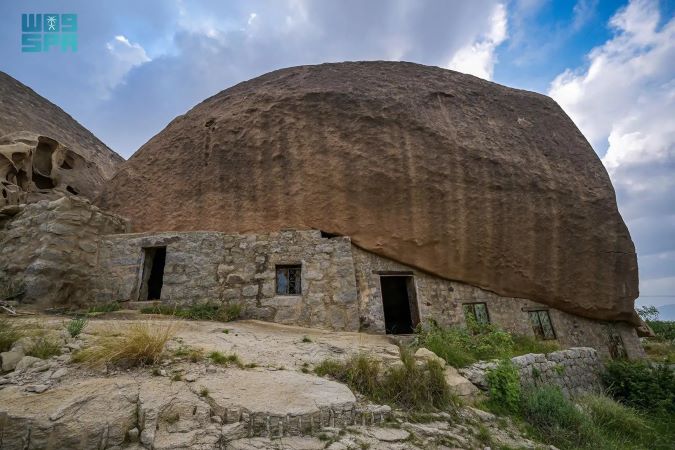
The reserve is a distinctive nature marvel in the Tihama area, where a steep granite mountain rises prominently.
More than 500 plant species have been registered in the reserve; they consist of trees, shrubs, grasses, annual and perennial plants
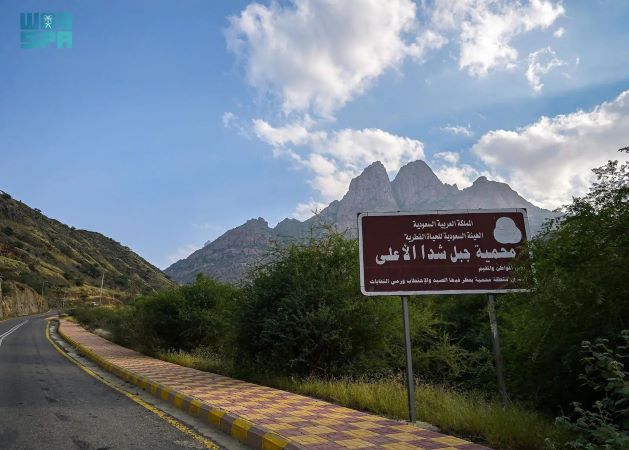 An extension of the Sarawat mountain range, the mountain consists of a striking rock formation on the Tihama Plain. This geological wonder, formed over millions of years, is of great aesthetic beauty and contributes to the biodiversity of the Kingdom of Saudi Arabia. This unique geological feature fosters a diverse and rare ecosystem characterized by abundant and varied plant and animal life.
An extension of the Sarawat mountain range, the mountain consists of a striking rock formation on the Tihama Plain. This geological wonder, formed over millions of years, is of great aesthetic beauty and contributes to the biodiversity of the Kingdom of Saudi Arabia. This unique geological feature fosters a diverse and rare ecosystem characterized by abundant and varied plant and animal life.
More than 500 plant species have been registered in the reserve; they consist of trees, shrubs, grasses, annual and perennial plants, the most important of which are juniper, olive tree, Namaqua fig and tamarind, and medicinal and aromatic plants, such as the hop-bushes and basil.
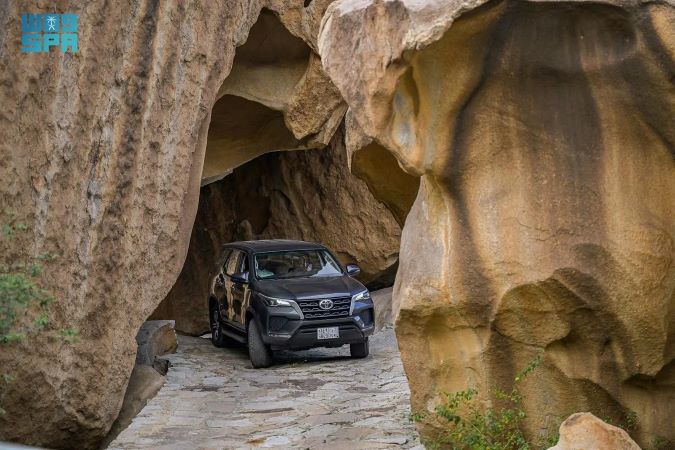 Arabian leopard, mountain ibex, Arabian wolf, lynx, mongoose, foxes, hyena, hyrax and baboons are some of the wild animal species that inhabit the reserve, which also boasts a rich avian population, both resident and migratory, that includes brown eagles, buzzards, kestrels, storks, warblers, Arabian babblers, and starlings. The reserve is also home to various reptiles, such as pond turtles, snakes, and lizards.
Arabian leopard, mountain ibex, Arabian wolf, lynx, mongoose, foxes, hyena, hyrax and baboons are some of the wild animal species that inhabit the reserve, which also boasts a rich avian population, both resident and migratory, that includes brown eagles, buzzards, kestrels, storks, warblers, Arabian babblers, and starlings. The reserve is also home to various reptiles, such as pond turtles, snakes, and lizards.
Arabian leopard, mountain ibex, Arabian wolf, lynx, mongoose, foxes, hyena, hyrax and baboons are some of the wild animal species that inhabit the reserve
Humans have inhabited the reserve for thousands of years, as proven by ancient artifacts and inscriptions. Communities attracted by the area’s natural fortifications and abundant resources have resided in different parts of this area for centuries, following a seasonal lifestyle.
In modern times, locals reside in some 10 villages, including Al-Saqran, Al-Sur, Al-Araba and Al-Jawa. Until recently, the population of these villages, counting around 2,500 people, relied on agriculture, cultivating the region’s coffee, known as Shada coffee, wheat, corn, millet, and fruits like banana, pomegranate, guava, and peaches.
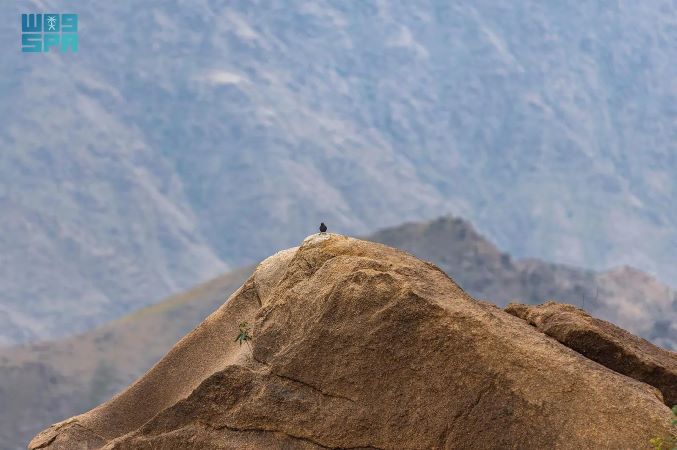
There is a strong drive to preserve the rich plant and animal diversity of the reserve, including endangered species like the Arabian tiger and mountain ibex, to protect the aesthetic value of the area, raise environmental awareness, promote scientific research, and support sustainable local initiatives that help the region develop, including Shada coffee cultivation and beekeeping.
With its natural beauty, distinctive rock formations, ancient inscriptions, and historical sites, the reserve has become a popular destination for visitors from within and outside the Kingdom. Its fame as the home of Shada coffee adds to its appeal.
____________________